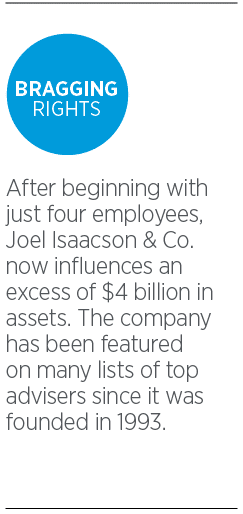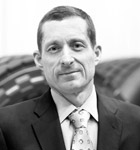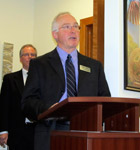Joel Isaacson’s career was stable and starting down the right path. After earning an accounting degree at Pennsylvania’s Lehigh University, he obtained a promising position as a certified public accountant (CPA) at Touche Ross & Co. However, his decision to take a daylong self-study course in financial planning altered his career path—and life—forever. It was the 1980s and there was no financial-planning industry to speak of. Yet, the native New Yorker knew innately that it was worth pursuing, no matter how uncertain its future. Once again, Isaacson found himself in school, pursuing an MBA at San Francisco’s Golden Gate University. Needless to say, it was time well spent. Isaacson is now the founder and CEO of Joel Isaacson & Co., a New York-based wealth-management firm that has about $4 billion in assets under advisement. Here, the CEO discusses entering a burgeoning industry and what it takes to stay relevant in one of the most competitive industries and cutthroat cities in the world.
When I first started out in the industry I was around 25 years old and working with seasoned tax experts who were relying on me to establish the planning practice within the firm. Taking that first course was the catalyst for everything and at that time in my life, I was able to enter a profession during its infancy because I didn’t have any real obligations. It was cool to get in at the early stage and it worked out well, but it also meant I didn’t have anything in the way of a mentor. There weren’t a lot of people in financial planning at the time and it goes without saying that it was a steep learning curve. Meanwhile, I had been receiving solid job offers from firms and I could have easily settled into a position as a CPA somewhere. Going that route simply lost its appeal to me—those were just jobs. This new thing I was pursing felt exciting; it felt right and I knew I could build a career and not just have a job.
 Initially, I didn’t want to be a CEO. My first 10 years back in New York were spent starting the financial-planning practices at other firms and relying on others to take care of the business side of it. Eventually I took an introspective look at what I was doing and started wondering why I wasn’t developing my own stand-alone management firm. Becoming a CEO was a process for me. I had to develop and mature before I took the role on. To this day, I still see my role as CEO as sort of a part-time position. I really consider myself a wealth manager; that is my passion.
Initially, I didn’t want to be a CEO. My first 10 years back in New York were spent starting the financial-planning practices at other firms and relying on others to take care of the business side of it. Eventually I took an introspective look at what I was doing and started wondering why I wasn’t developing my own stand-alone management firm. Becoming a CEO was a process for me. I had to develop and mature before I took the role on. To this day, I still see my role as CEO as sort of a part-time position. I really consider myself a wealth manager; that is my passion.
People generally do not have a holistic view of their long-term needs. Truth be told, not that many wealth-management firms do the heavy lifting of financial planning, but I’ve been doing this since 1984. That’s 27 years at the top and there’s a reason why we are one of the largest firms in New York. We roll up our sleeves and do the work necessary to get a full understanding of a client’s present financial condition and future needs. We’re a wealth-management firm that does financial and tax planning and we do it well.
What keeps us relevant and successful is the easiest thing to overlook in this industry: putting our clients first. We’re very much a family firm; we’re going to be here through difficult times, through these incredibly tumultuous financial environments. Ethics is the cornerstone of our approach—we live it every day in what we do and how we operate. We want to be a part of a family forever, that’s the relationship we’re trying to develop
with each client.

